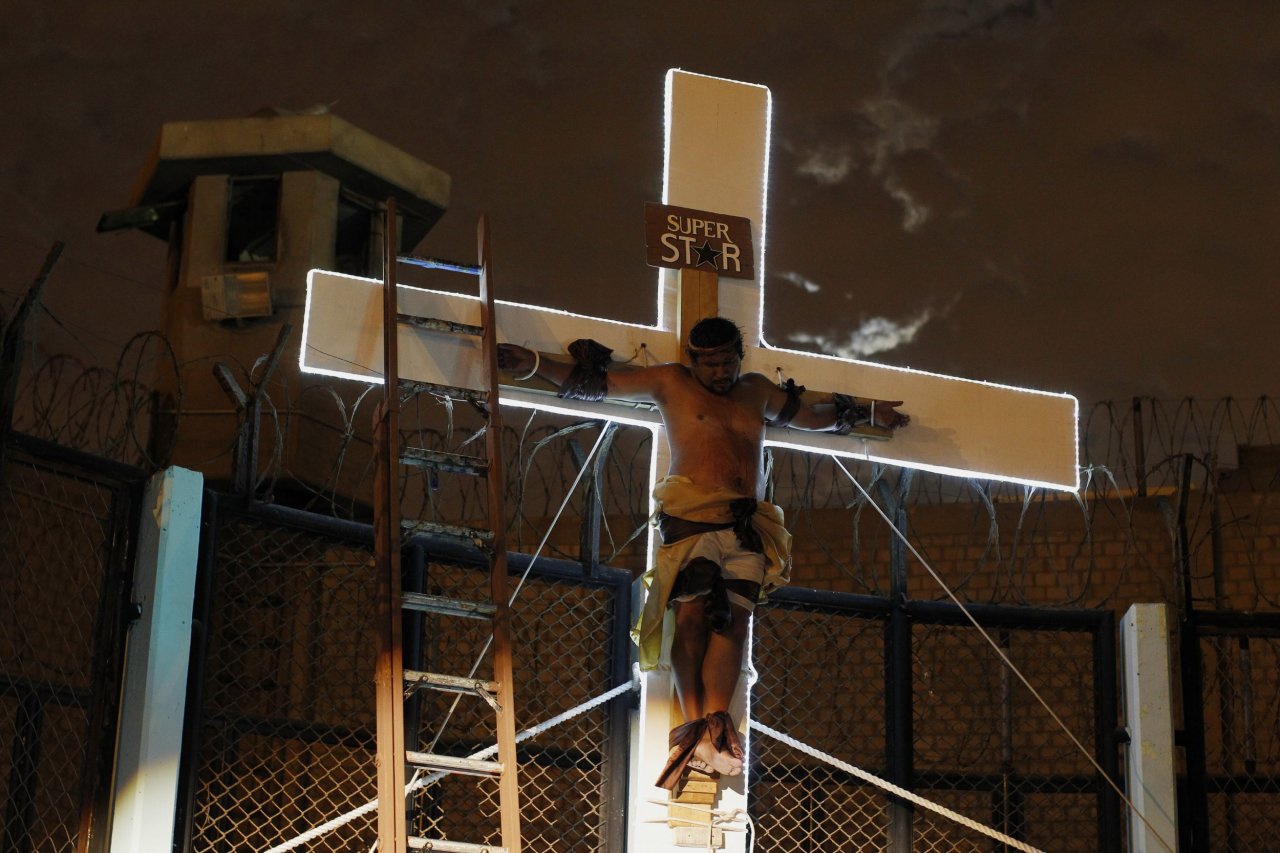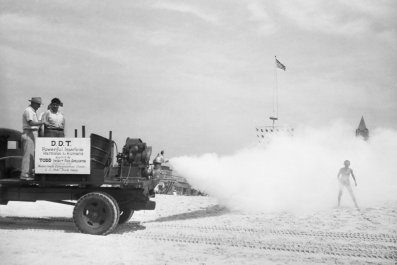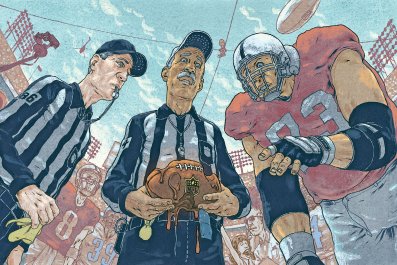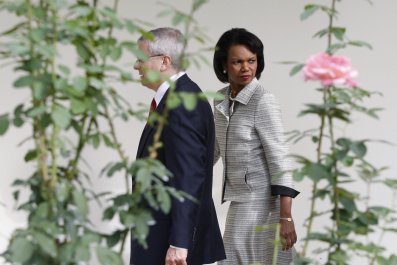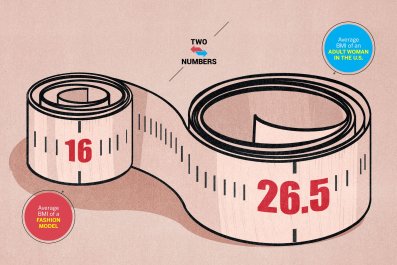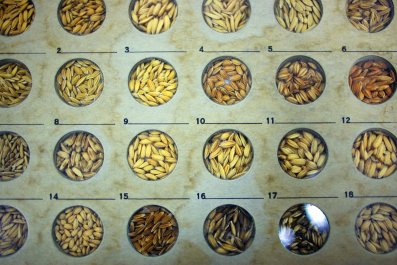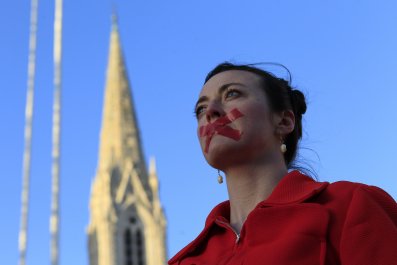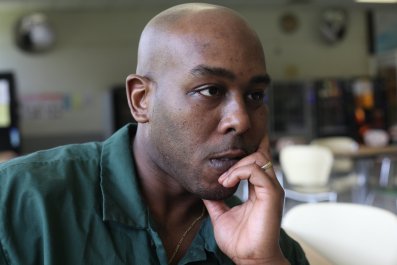Clarence Darrow was right: Religion guides how harshly people view criminal defendants and felons.
"If a Presbyterian enters the jury box and carefully rolls up his umbrella, and calmly and critically sits down, let him go," the famed defense attorney wrote in a 1936 essay for Esquire, "How to Pick a Jury."
"He is cold as the grave; he knows right from wrong, although he seldom finds anything right. He believes in John Calvin and eternal punishment."
A new study backs up Darrow's advice, finding that belief in a vengeful God will lead a person to oppose programs that help prisoners re-enter society, while a person who believes in a loving and forgiving God is more likely to support those programs.
"Stronger feelings of religious forgiveness led to greater support for assisting offenders," says the study of 386 random Missourians. "The people who had the stronger punitive picture of God were less likely to support transitional programs, things like substance abuse programs," says Brett Garland, a professor at Missouri State University and an author of the study.
Past research echoes the Missouri findings. "Fundamentalists tend to be more punitive. They do believe in 'an eye for an eye and a tooth for a tooth,'" Monica Miller, a professor at the University of Nevada, Reno, tells Newsweek. Miller's research found stronger support for the death penalty among those who take the Bible literally and among fundamentalists, who place more weight on the Old Testament than the New.
"Various religious characteristics are related to death penalty attitudes and verdicts.... A defense attorney should eliminate potential jurors who believe in a literal interpretation of the Bible, have fundamentalist beliefs, believe that God requires the death penalty for murderers, and believe that their religious group supports the death penalty," Miller says in a 2007 article.
"I believe the authority that God has is the authority of love, not brute power and punishment," says Morgan Guyton, a Methodist minister in Louisiana and the director of Christian centers at Tulane and Loyola universities. Guyton tells Newsweek he believes the cross symbolizes God's solidarity with criminals because Jesus was crucified as a lawbreaker and even expressed his kinship with the robbers who hung beside him.
The minister also opposes the death penalty because he believes it would be a tragedy for a prisoner to be executed before repenting. "That is why every evangelical Christian who believes in salvation and redemption must fiercely resist the state-sanctioned murder of even the coldest-blooded of murderers," Guyton wrote on his blog in September. "Because we believe that Jesus can save them and they should have every opportunity to hear the gospel until they take their last breath and die of natural causes."
But other branches of Christianity take a harsher view. "God requires a reckoning for the lives of the innocent," Russell Moore, the president of the Ethics & Religious Liberty Commission of the Southern Baptist Convention, said in a 2014 podcast, quoting Genesis: "Whoever sheds the blood of man, by man shall his blood be shed, for God made man in his own image."
Moore goes on to quote Romans, and how governing authorities bear the sword, as he argues in favor of capital punishment. "I think that is clearly language that talks about the lethal power of the state that bears the sword only against evil doers. Evil doers face the sword, not the innocent."
The history of criminal justice in the United States is intertwined with religion, Garland and his co-authors wrote in the article "Religious Beliefs and Public Support for Prisoner Reentry," which presented their study results in December. "In colonial America, punishments were largely corporal in nature, often quite brutal, and motivated to retaliate against sinfulness," the article says, before describing two very different approaches to corrections by forgiving Quakers and punitive evangelicals in the years after the American Revolution.
"In Pennsylvania, prominent Quakers led a political movement to establish the penitentiary as 'repentance-based punishment' where prisoners were kept in total isolation and complete silence both day and night," reads the article, published in Criminal Justice Policy Review and first reported on by the Crime Report. "Quakers were optimistic about the potential for offender behavioral change, believing that every person had an innate goodness or inner light that connected them directly to God."
Conversely, in New York around the same time, evangelicals with traditional Calvinist and Puritan roots believed in man's fallen and depraved nature. "For New York reformers, corporal punishment was deemed integral to prison management so that prisoners would feel the wrath of God as a pretext for conversion," the article says. More recently, political support for the Second Chance Act, a monumental bill that provided government assistance for prisoner re-entry programs nationwide when it passed in 2007, was built partly by citing biblical passages during congressional debates.
Some academics dispute the idea that fundamentalists and those who take the Bible literally always take a harsher view toward criminals and prisoners, calling that an outdated notion grounded in dated studies.
"Subsequent research found that people who adhere to strict belief of Bible also read the dictums about forgiveness," East Carolina University professor Mark Jones tells Newsweek, adding that he's found Pentecostal and Southern Baptists to be just as helpful with prisoner re-entry programs as other groups. A study Jones recently completed on Christian attitudes toward released prisoners showed that Unitarians are the most welcoming towards ex-cons and Roman Catholics the least welcoming, with mainline Protestants and evangelicals in the middle.
In his 1936 essay for Esquire, Darrow predicted the views toward criminals and defendants that Guyton, the Methodist, and Moore, the Southern Baptist, would hold almost 80 years later. The guidance he gave defense attorneys for picking sympathetic jurors seems to remain solid.
"The Methodists are worth considering; they are nearer the soil. Their religious emotions can be transmuted into love and charity," Darrow wrote. "If chance sets you down between a Methodist and a Baptist, you will move toward the Methodist to keep warm."



